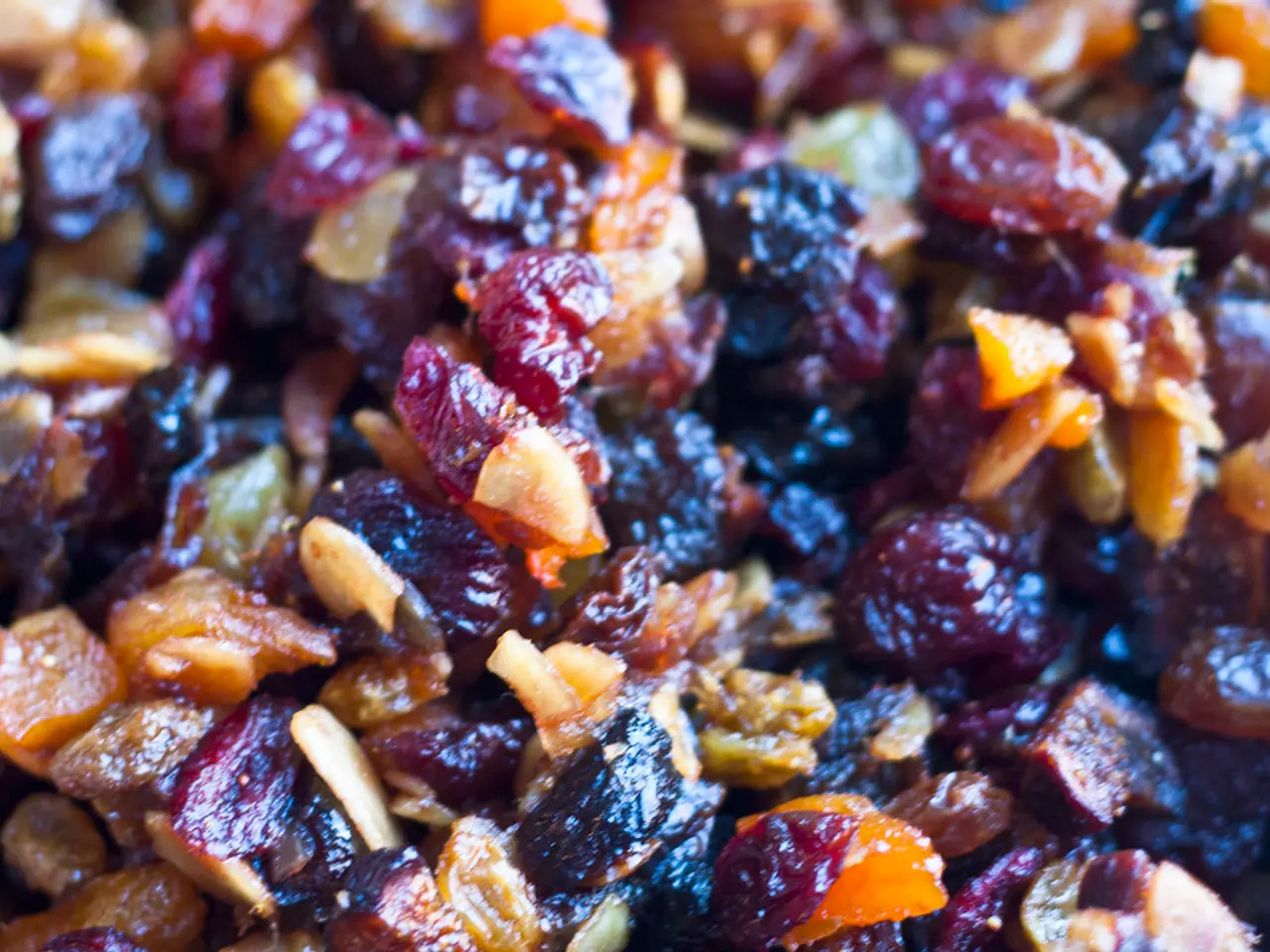Benefits of Adopting a Plant-Based Dietary Regimen
In the world of dietary choices, vegetarianism stands out as a popular and health-conscious option. This article aims to shed light on the different types of vegetarian diets, their food restrictions, and the nutritional benefits they offer.
Firstly, let's define a common type of vegetarian diet: the lacto-ovo-vegetarian diet. This diet includes eggs and dairy products but excludes meat, poultry, fish, and seafood. By making this choice, individuals opt to avoid foods requiring the death of animals, yet still consume milk, cheese, yogurt, and eggs.
Another variant is the lacto-vegetarian diet, which excludes meat, eggs, and poultry but includes dairy. The avoidance of eggs is often due to concerns about chick culling or animal welfare in egg production.
The ovo-vegetarian diet, on the other hand, excludes meat, dairy, and fish but allows eggs. Dairy is avoided due to concerns over calf separation and milk industry practices.
A strict vegetarian diet is veganism, which avoids all animal products, including meat, dairy, eggs, and often honey. Vegans also exclude animal-derived products beyond food, such as in clothing. Plant-based alternatives must be strictly followed.
A subset of veganism is the fruitarian diet, which permits only fruit, nuts, seeds, and plant parts that can be harvested without damaging the plant.
The raw vegan diet is another variation, where only fresh, uncooked fruits, nuts, seeds, and vegetables are eaten, with food typically not heated above 118 °F (48 °C).
The sattvic (Yogic) diet is mostly plant-based, including dairy and honey but excluding eggs, certain lentils, mushrooms, alliums (like onions and garlic), fermented foods, alcohol, stimulants (coffee, tea, chocolate), and pungent spices.
Lastly, the flexitarian (semi-vegetarian) diet serves as a flexible approach between vegetarianism and omnivory, mainly consisting of plant-based foods but occasionally including small quantities of fish, eggs, poultry, or dairy.
Each of these variants differs primarily in which animal-derived foods they allow or exclude, reflecting ethical, environmental, health, or religious considerations.
One key nutritional benefit of a vegetarian diet is its potential to help lower cholesterol and blood pressure levels, reduce the risk of obesity, heart disease, hypertension, diabetes, and possibly cancer. However, it's important to note that vegans, in particular, may need to be intentional about their diet to avoid deficiencies in certain nutrients, such as vitamin B12 and vitamin D.
Dark, leafy greens like kale, broccoli, and spinach are calcium-rich foods for vegans, as are calcium-fortified nondairy milk alternatives, almonds, blackstrap molasses, calcium-fortified cereals and juices, and cornmeal products treated with lime. Soy is another common source of protein in vegetarian diets, with soy products such as soybeans, soy milk, tofu, tempeh, soy pasta, and prepared soy products providing additional protein sources.
Vitamin B12 is the only vitamin not present in plant foods, and vegans won't get enough of this nutrient. Good sources of vitamin B12 for vegans are fortified cereals, nondairy milks, vegan supplements, and nutritional yeast. Vitamin D can be obtained from a variety of sources, including mushrooms, fortified vegan milks, juices, and cereals, and vegan supplements with food, with vitamin D2 (ergocalciferol) being always vegan and some vitamin D3 being vegan from lichen.
It was once thought that vegetarians had to combine certain foods to get a complete protein, but this is no longer the case. There are many non-animal sources of protein in a vegetarian diet, including nuts, seeds, legumes, lentils, tempeh, whole grains, and prepared wheat gluten foods.
In conclusion, the variety of vegetarian diets caters to diverse preferences and needs, offering a range of nutritional benefits. Whether you're a lacto-ovo vegetarian, lacto vegetarian, ovo vegetarian, vegan, fruitarian, raw vegan, sattvic, or flexitarian, there's a vegetarian diet that suits your lifestyle.
- Adopting a lacto-vegan diet, which excludes meat, fish, dairy, and eggs, can lead to deficiencies in nutrients like vitamin B12, requiring intentional planning with food sources such as fortified cereals, nondairy milks, and nutritional yeast.
- Consuming a sattvic (Yogic) diet, characterized by primarily plant-based foods along with dairy and honey, can provide a range of nutritional benefits, including calcium-rich foods like dark, leafy greens, almonds, and calcium-fortified products.
- Following a balanced vegetarian diet, such as a flexitarian diet that incorporates small amounts of fish, eggs, poultry, or dairy, may help individuals maintain a healthy diet, improve their health, and potentially reduce the risk of certain diseases, while remaining mindful of nutrient deficiencies like vitamin B12.




